Monthly Archives: November 2017

History by Numbers?
I spent the first semester of this academic year teaching a course called Growth and Inequality in a history master’s programme where we tackle quite a lot of economic history papers. I have now taught this course three times and taken it myself when I was a graduate student. The students who take this masters…
Read more
Filming…
Today I was in front of a green screen for the first time ever. I have only once been filmed professionally before, for the Antiques Roadshow (the BBC version) when I was ten and brought in my great-great Uncle’s Waterloo medal to the Sint-Nikolaaskerk in Amsterdam. In that clip I am largely mute, expressing surprise…
Read moreSCOOP
Deadline for applications for the SCOOP programme. 10 PhD positions, within the context of the SCOOP programme – Sustainable Cooperation – Roadmaps to a Resilient Society are currently open to applications. Positions 3 and 5 have an explicitly historical focus; 3: Accommodating Newcomers in the Labour Market 5: Running the Family Business: Stakeholders, Values and…
Read more
The importance of History (and broad university degrees)
As mentioned in the previous post I spent Friday and Saturday working at the open days of the History and PPE programmes. One of the things prospective history students get asked by their family and friends is what they’re going to do with their degree (the cliché question is do you want to be a…
Read more
Open days
Today I presented at the information sessions for two different degree programmes, the English language History BA we offer in Utrecht, and the new Politics, Philosophy, Economics and History (PPE+H) programme. It is always a positive experience to see new, enthusiastic students looking for the degree that will suit them best. Talking to prospective students…
Read more
Position of women 3: Venus and the disappearing goddesses
Yesterday the BBC broadcast a documentary called Venus Uncovered. In an article linked to the documentary Bettany Hughes sketches the evolution of the goddess Aphrodite/Venus over the centuries (here). This article was interesting for me, firstly as I’ve just taught a course in which two students wrote pieces on what are known as Venus figurines….
Read more
The Dutch Knowledge and Information Society
On the 21st of March next year the Netherlands will have a referendum on something that is generally referred to as the ‘sleepwet’. This bill proposes that the Dutch intelligence and security services, the AIVD and MIVD, should be authorized to collect and store data from citizens on a massive scale, regardless of whether they…
Read more
Who owns England?
An interesting resource and project I came across – Who owns England? and the related project website. For those interested in property rights and distribution of resources across a population worth taking a look. The visualisation is interesting as an example of how mapping can reveal interesting patterns. Another example of this can be found…
Read more
Position of women 2: Child Marriage American style
I came across this fascinating article on child marriage in the United States today – Married Young: The Fight over Child Marriage in America. (for the associated podcast see here). The account of Heather (15) and Aaron’s (24) marriage is an insight into a practice we often associate with far-flung corners of the world. What…
Read more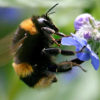
Book tips – Biodiversity and Bees
I was recently asked to write a book suggestion for the History bachelors newsletter. I found it very hard to limit myself to one book, so here I include my original suggestions with a connection to the topics covered by economic historians, as well as some additional fodder. So when I have time I’m an…
Read more
Seminar paper: Entrepreneurs and unicorns
Today our very own Selin Dilli presented in the seminar. Selin completed her PhD within the project “Agency, Gender, and Economic Development in the World Economy, 1800-2000” with a dissertation focused on measuring the position of women over the long term and a particular focus on women’s political participation. Her paper today was titled “The Diversity…
Read more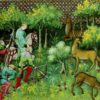
Piketty and the Charter of the Forest
With the recent publication of the Paradise papers yet another glimpse has been given into the ways the financially blessed avoid paying their fair dues back into society. It wasn’t as if we didn’t already know this. The coverage and revelations echo closely those as a result of the publication of the Panama papers last year. This…
Read more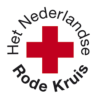
History of the Red Cross
A recent history of the Dutch Red Cross during WWII, for which Keetie Sluyterman of our department was on the supervisory committee, was published on the 1st of November. The conclusions were stark; the Red Cross in the Netherlands did next to nothing for Dutch Jews. To read more on the reason the book was…
Read more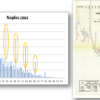
Age Heaping
Sometimes economic and social historians have to get creative when trying to answer interesting questions using historical data. One of the things we would really like to know is how skilled and/or educated people were in the past. Education, or more commonly in the economic history literature – human capital, is an important determinant of…
Read more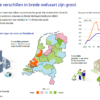
Measuring Welfare Broadly
On Friday the 27th of October, our very own Bas van Bavel and Auke Rijpma presented their collaborative work with Rabobank on a broad measure of welfare, to the provincial council of Brabant. This indicator aims to go beyond standard measures of growth (often construed as GDP) to cover many different variables that effect people’s…
Read more
Seminar paper: Planted towns
Seminar paper Kerstin Enflo and Alexandra López-Cermeno (Lund University), presented on the 2nd of November in our Autumnal seminar series. The modern imagination can conjure a number of examples of towns and cities established where formally there were none (or very small outposts). Huge cities appearing where very little had stood before; Brasilia springs to mind, as does Canberra….
Read more
New CGEH WP – Benchmarking the Middle Ages – 15th century Tuscany in European Perspective
A new working paper just went up on our sister site the CGEH (Centre for Global Economic History). Written by Jan Luiten van Zanden, of our own group, together with Emanuele Felice of the University of Chieti-Pescari it explores new estimates of Gross Domestic Product – GDP (so how much an economy produces) for 15th century…
Read more
